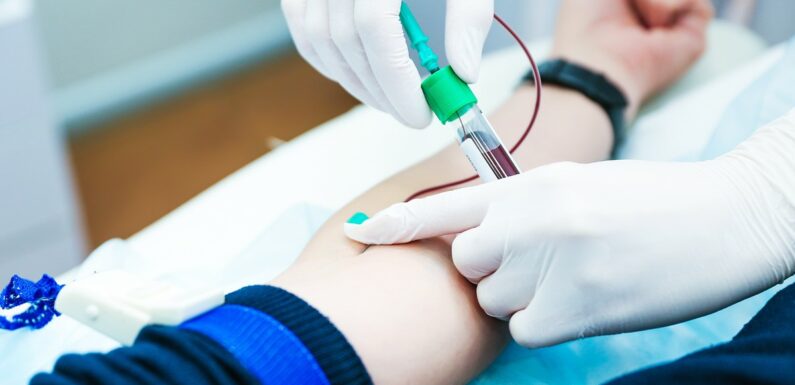
Cancer remains a formidable health challenge, affecting millions worldwide. High-risk individuals, those with a family history or other predisposing factors, face an increased likelihood of developing cancer. Regular cancer marker testing plays a crucial role in the early detection and management of cancer for these individuals. This article explores the significance of such testing and its impact on proactive healthcare.
Understanding Cancer Marker Testing: A Vital Diagnostic Tool
What Are Cancer Markers?
Cancer markers, also known as tumor markers, are substances produced by cancer cells or by the body in response to cancer. These markers can be detected through blood tests, imaging studies, or other laboratory analyses. Elevated levels of certain markers may indicate the presence of cancer or provide insights into its progression.
The Role of Cancer Marker Tests
Tumor marker tests serve various purposes, including screening, diagnosis, monitoring treatment effectiveness, and detecting cancer recurrence. High-risk individuals benefit significantly from regular testing, as it allows for the early detection of cancer or precancerous conditions, enabling timely intervention.
Identifying High-Risk Individuals: Who Should Undergo Cancer Marker Testing?
Family History of Cancer
Individuals with a family history of cancer, especially first-degree relatives such as parents or siblings, are considered at higher risk. Regular cancer marker testing is essential for these individuals to detect genetic predispositions or early signs of cancer.
Personal History of Cancer
Those who have previously been diagnosed with cancer may be at an increased risk of recurrence. Regular cancer marker testing helps monitor for any signs of relapse and guides healthcare professionals in adjusting treatment plans if necessary.
Genetic Predisposition
Certain genetic mutations increase the risk of developing specific types of cancer. Individuals with known genetic predispositions, such as BRCA mutations for breast and ovarian cancer, benefit from regular cancer marker testing to detect potential malignancies early.
The Importance of Early Detection: Proactive Cancer Management
Increased Treatment Options
Early detection of cancer through regular marker testing provides a broader range of treatment options. In the early stages, cancer is often more responsive to various interventions, including surgery, chemotherapy, and targeted therapies.
Improved Treatment Outcomes
The correlation between early detection and improved treatment outcomes is well-established. Regular cancer marker testing allows healthcare providers to intervene at a stage when the disease is more manageable, potentially leading to better prognoses and increased survival rates.
Minimized Treatment Aggressiveness
Early detection may reduce the need for aggressive treatments. With timely intervention, less invasive therapies may be sufficient to address the cancer, minimizing the impact on the individual’s overall well-being.
Common Cancer Marker Tests and Their Significance
CA-125 for Ovarian Cancer
CA-125 is a marker often used in the detection and monitoring of ovarian cancer. High-risk individuals, especially those with a family history or genetic predisposition, may undergo regular CA-125 testing to identify early signs of ovarian cancer.
PSA for Prostate Cancer
Prostate-specific antigen (PSA) is a marker associated with prostate cancer. Men with a family history or those of African descent, who face an increased risk, may benefit from regular PSA testing for early prostate cancer detection.
BRCA Testing for Breast and Ovarian Cancer
BRCA gene mutations significantly elevate the risk of breast and ovarian cancer. Regular BRCA testing is essential for high-risk individuals to identify genetic predispositions, enabling proactive measures such as increased surveillance or preventive surgeries.
Addressing Concerns and Misconceptions about Cancer Marker Testing
Anxiety and Stress
Concerns about anxiety and stress related to cancer marker testing are common. However, early detection provides an opportunity for proactive management, potentially alleviating long-term anxiety associated with advanced-stage cancer diagnoses.
False Positives and Negatives
Understanding that no test is perfect is crucial. False positives and negatives may occur, requiring additional diagnostic procedures. However, the benefits of early detection and the management of cancer risk far outweigh the challenges posed by occasional inaccuracies.
Invasiveness of Testing
Many cancer marker tests involve simple blood draws or non-invasive imaging studies. The minimal invasiveness of these tests makes them accessible and manageable for most individuals.
Integration of Cancer Marker Testing into Personalized Health Plans
Customized Surveillance Plans
High-risk individuals benefit from personalized surveillance plans that incorporate regular cancer marker testing. These plans are tailored to an individual’s risk factors, family history, and genetic profile, ensuring a proactive and targeted approach to healthcare.
Collaborative Healthcare
Collaboration between patients, primary care providers, and specialists is crucial for effective cancer risk management. Regular communication facilitates the creation and adjustment of personalized health plans based on evolving risk profiles and medical advancements.
Empowering High-Risk Individuals with Proactive Healthcare
Regular cancer marker testing is a powerful tool for high-risk individuals, offering the potential for early cancer detection and proactive management. By identifying genetic predispositions, monitoring for early signs of cancer, and integrating testing into personalized health plans, individuals can take charge of their health and well-being.

